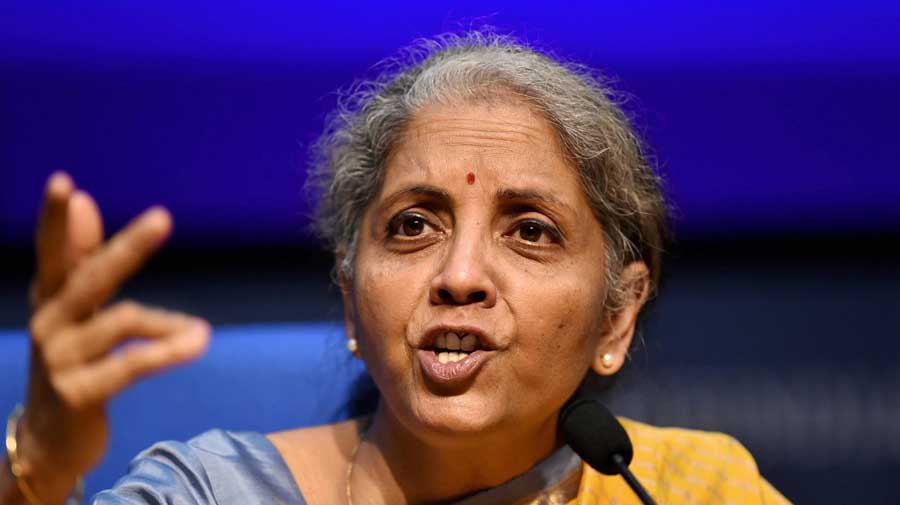The Union Budget for 2021-22 gave little assurance to migrant workers and the unemployed.
Finance minister Nirmala Sitharaman on Monday reiterated some old schemes like the One Nation One Ration Card to enable the beneficiaries get rations in places where they have migrated for work. She proposed to launch a portal that will collect information on gig, building and construction workers. This will help formulate health, housing, skill, insurance, credit and food schemes for migrant workers.
However, Sitharaman was silent on the demand from academia and civil society groups for an employment assurance scheme on the lines of Mahatma Gandhi National Rural Employment Guarantee Act (MGNREGA) for the urban people.
The budget document made no allocation for the social security fund that has been provided under the Code on Social Security, 2020, which was passed in the last session of Parliament. The code seeks to provide social security coverage to unorganised workers, including migrant workers.
The new law provides for creation of a social security fund to finance schemes like old-age pension, life and disability cover and health and maternity benefits for unorganised workers. The law says the scheme notified by the central government may be wholly or partly funded by the central and state governments or partly funded by the Centre, states and contributions collected from the beneficiaries of the scheme or the employers or funded from any source, including the corporate social responsibility funds paid by companies.
Labour economist K.R. Shyam Sundar, professor at XLRI-Xavier School of Management, Jamshedpur, disapproved the lack allocation for a social security fund.
“The central government is one of the contributors for the social security fund and social security schemes as promised under the Social Security Code. It was expected that the finance minister will allocate some funds for the proposed schemes under the code. But there is no allocation,” Sundar said.
He also doubted the proper implementation of the One Nation One Ration Card scheme. If properly implemented, the states by now should have enrolled migrant workers too. However, there is no data on this process.
Migrant workers were worst hit when the Covid-19 pandemic hit the nation. Nearly six million salaried workers also lost their jobs in the months of May, June, July and August, according to research group Centre for Monitoring Indian Economy. Academicians and civil society groups have been demanding for an urban employment scheme.
“The two labour market outcomes from the Covid-19 hit economy are unemployment and underemployment and diminution in incomes. The Union Budget does not address either,” Sundar said.
He said the government should have transferred money to the pockets of needy people for some months to strengthen the aggregate demand in the economy. There is no such announcement either.
For MGNREGA, Sitharaman allocated Rs 73,000 crore in 2021-22. In 2020-21, the budget had allocated Rs 61,500 crore to the rural job scheme, which was later revised to Rs 105,500 crore.
Debmalya Nandy, a researcher on MGNREGA, said the allocated amount is much less in view of the increased demand for work in rural areas.
“This is disappointing that the government is ignoring the current rural employment distress while there is a need for maximising the spend on NREGA for enhancing rural demand. The pandemic has shown that there is heavy dependence on NREGA for employment in the country and the government needed to push the scheme by allocating at least Rs 2 lakh crore for the programme, enhance the wages to match the minimum agriculture wages of the states and increase workdays to at least 150 days in a year,” Nandy said.











